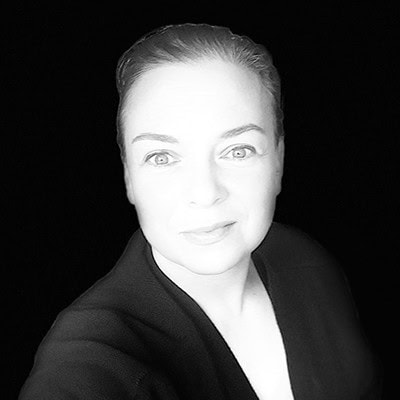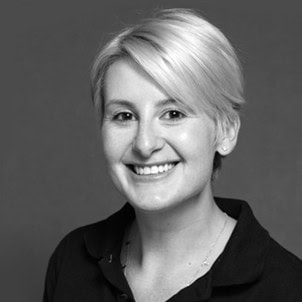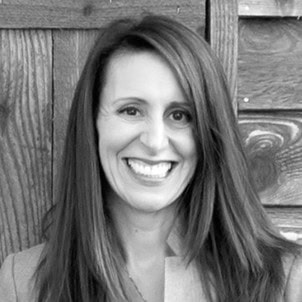Building Brands and Finding True Agency Partners

Let’s Talk About Marketing
-
What’s your current role and how long have you been doing marketing?
I've spent over 20 years in marketing, progressing from junior coordinator roles to managing demand generation, marketing operations, and business development teams, and ultimately to marketing leadership positions.
Most of my career has focused on building brands and go-to-market strategies for companies going through Series A and B funding rounds and targeting rapid growth. My latest engagements included being a CMO at Teramind, a leader in insider threat mitigation and user behavior analytics, and I have an advisory role with Built with Science, a leader in science-based fitness programs.
-
What would you say is your favourite thing about marketing?
I believe that marketing plays a critical role in a company's growth. My favorite aspect about marketing is its ability to impact growth at every level, while maintaining an absolute focus on the customer's needs. Whether it's the awareness stage and recognizing one's challenges, delivering knowledge and value during the research stage, or managing the entire customer journey through lifecycle and implementation, marketing is key. The ultimate measure of growth is revenue, but the engine driving it is customer satisfaction at every point of that journey. Successful brands understand this, and that's my favorite part.
Then it gets even more interesting when you dive into the data. You're refreshing pages, analyzing how long people stay, what they click on. It's all about that discovery process of finding what resonates with your audience.
There's something really satisfying about connecting those psychological insights with tangible results. It's like solving a puzzle, piecing together human behavior and data to create messages that truly click with people. That feeling when it all comes together? It's just so fun and rewarding.
-
How do you determine what are your top marketing priorities/goals?
The way I approach priorities is by building backwards from the company's goals, then identifying the most impactful ways of accomplishing those goals. No company is the same, and while the key metric can be revenue, the pathway to that revenue is unique to each business. For some, it's expanding and upselling existing customers; for others, it's breaking into enterprise markets and generating pipeline in specific segments; and for others, it's nailing conversion and win rates. At the end of the day, it's rooted in data and the ability to find directional indicators on the fastest path to revenue.
In early-stage companies, revenue usually takes the front seat - we need to show results fast, and it's all about making each quarter count. Awareness and scalability are important too, but they often play second fiddle to revenue needs.
I love running experiments - usually 2-3 per quarter, investing anywhere from $5-10k depending on the company. It's all about testing, learning, and doubling down on what works. That's how we drive growth!
-
What do you consider are your top challenges when it comes to demand gen?
The coolest part about demand generation is that it constantly changes and evolves. As soon as something becomes a best practice, it quickly becomes outdated whether it’s because of shrinking audience attention, search algorithm changes, oversaturation of the same approach by other marketers. The challenge is to keep learning, experimenting, and staying focused on your customers' needs.
-
Can you describe the ideal (but realistic) structure for a marketing team? What are your must-have/key roles?
The roles in a marketing team depend on the company's size, stage, marketing priorities, and the marketing leader's skillset. In early-stage companies, the marketing team structure is lean and is built to complement the marketing leader's strengths and achieve main priorities. As the company scales, the marketing team needs to add expertise around key areas - operations, product & industry knowledge, content, international markets and localization, growth expertise just to name the few..
For me, some of the most critical roles include demand generation and SEO capabilities impacting pipeline, content creation, design, and lifecycle specialization. As the company grows, operations and global roles become increasingly important. The team structure evolves to support the company's expanding needs and market presence.
Let’s Talk About Agencies
-
How do you determine which marketing activities are managed in-house vs those outsourced?
I evaluate the daily workload and the need for specialized expertise. For example, if a project requires high-level skills but less than full-time commitment, an agency is ideal. This is especially true for long-term initiatives where the agency excels.
For example, a complex website launch might require web design, structure, and senior-level expertise in conversion optimization. After launch, the intensity of these needs decreased, but ongoing work for landing pages and optimization remained for several months. This scenario is perfect for leveraging an agency's diverse team without hiring specialists full-time.
-
What green flags do you consider when looking for an agency?
A sign of a great marketing leader is a strong network of agencies and industry relationships. My top priority is personal experience or a colleague's recommendation of someone they've successfully worked with. I also focus on how an agency approaches engagement—whether it's results-driven or process-oriented.
I've encountered too many SEO proposals filled with fluff and lacking commitment to tangible outcomes. I prefer agencies that present a clear strategy, initial benchmarks, and measurable impacts. Additionally, I appreciate agencies that can supplement my team when needed, such as providing design support for a long-term digital campaign.
-
What are some red flags that would make you reconsider working with an agency
Any agency that charges a percentage of my ad or campaign spend is clearly incentivized to drive my costs up rather than improve my ROI. That's a red flag. I'm concerned about agencies that rely on preset playbooks without bothering to audit my existing website or campaign structure.
I won't work with agencies that can't relate my goals to their strategy for achieving and measuring those goals, or those that speak only in generic terms. Additionally, an agency that identifies a list of issues without offering solutions and ways to execute those solution strategies is not the right fit for me.
-
When engaging with an agency, what are your key expectations, and how do you measure the success?
Depending on the project, success measures are quite simple: it's the difference from where we started. This is why an evaluation or audit before we begin is so important. We look at the metrics affected by the agency's strategy and activities. For partnerships focused on website performance and SEO, we measure organic traffic, user engagement, and conversions before and after the initial strategy deployment, as well as at ongoing intervals. To me, an agency is an extension of my team; they understand my business, my challenges, and genuinely care about my goals. When we catch up, we discuss not only the results so far but also future opportunities. I really value the unique insights agencies gain from working with various clients, as it enhances the overall value of our partnership.
Let’s Talk About Dos Lados
-
When it comes to working with us, Dos Lados, can you describe the project/services we collaborated on?
I worked with Dos Lados on a complex project for Traction Guest that involved launching a new brand, completely rebuilding our website, and optimizing our digital channels. The core of the project was creating a new website with improved structure, user experience, and conversion-focused design. Dos Lados was instrumental in developing this new site, ensuring it aligned perfectly with our rebranded product platform.
Beyond the website, we expanded our digital presence across various channels. This included optimizing our paid campaigns and refining our landing pages to boost conversions. Dos Lados played a key role in implementing these strategies, helping us to increase our pipeline across organic, paid, and referral channels. Their expertise was crucial in creating a cohesive digital ecosystem that supported our new brand and drove the right kind of conversions.
-
What aspects of our partnership were most valuable to you, and what were some of the results you’ve seen?
Other than a level of expertise in user behaviour, website optimization and web page structure, I was looking for a partner that could handle the complexity of multiple stakeholders, ongoing changes, and also help me make the most of the brand and website launch. Dos Lados was that partner. They were with me every step of the way -project managing every page, adopting to changes, advocating for the user, ensuring the one and only focus is on the page conversion as we’ve established.
-
What has been the most unexpected benefit of working with us?
The level of organization—from the initial kickoff to the wireframe structure—was impressive. I thought I would be the one pushing them along, but the remarkable thing was that it was the opposite. They drove the project as much, if not more, than I did, tracking all the complex change requests, timelines, and design deliverables. They were as invested in the success of the launch as I was. When your agency stays with you through the night of the launch, even after your team has signed off, that’s rare. That’s when you know you have a true partner.
-
What advice do you wish you were given about marketing or working with agencies?
I wish someone had advised me that partnering with an agency should feel just like working with my own team. I prefer smaller agencies where I can connect with a specific person who handles my account. To me, an agency is an extension of my team. Here’s a tip: if I’m speaking with an agency and I think, “I’d love to have this person on my team,” even if I can’t hire them, that’s a strong indicator it’s a good match. It means they’re already aligned with my goals; I’ve just found a smart way to integrate their expertise.
Inspired by this story?
Every great result starts with the right partner. If you're ready to build smarter, bolder marketing—we’d love to be part of your story.
Let's Talk Talk with: Mercedes Book, Marketing Leader
Talk with: Mercedes Book, Marketing Leader
 Talk with: Jennifer Tomlinson, EVP, QorusDocs
Talk with: Jennifer Tomlinson, EVP, QorusDocs
 Talk with: Jeff West, Sr. Demand Generation Manager, Maximizer
Talk with: Jeff West, Sr. Demand Generation Manager, Maximizer